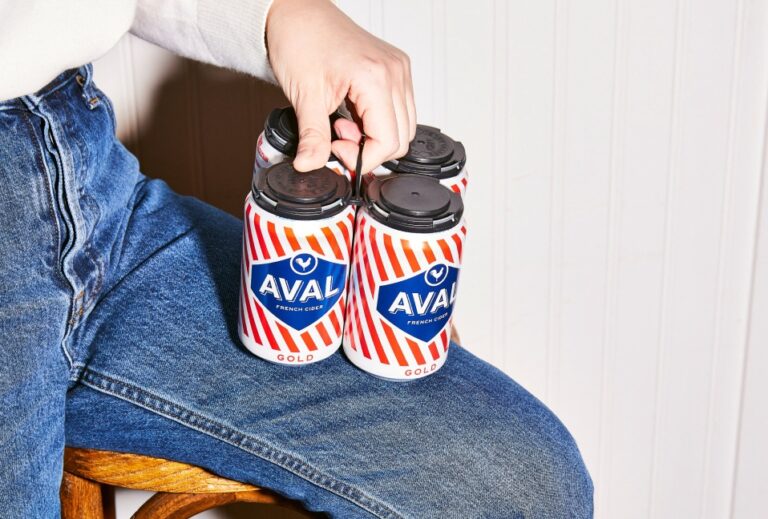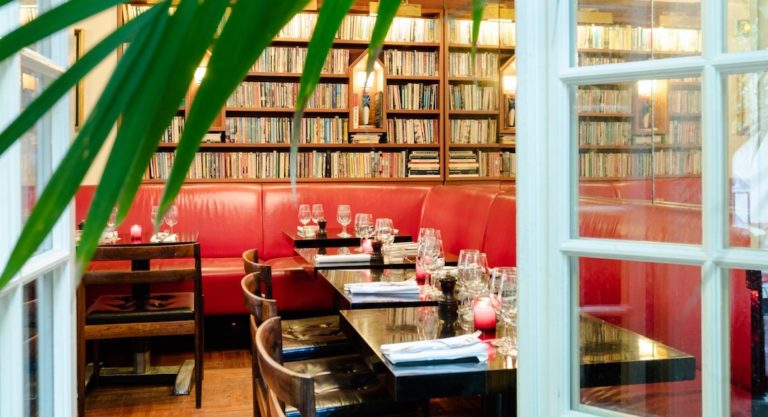In honor of la rentrée, France’s return to school and also normalcy, you should make a learning goal of your own: speak French like a real French person. None of this “qu’est-ce que c’est que ça?” stuff, you’re going to say “c’est quoi?” like a normal Gaulle. Here are 11 words and phrases you absolutely need to know for speaking French without sounding like a textbook, as spoken and defined by our French Morning coworkers in the office. Refresh you mind with our lists of words from February, March, April, May, June, July, and August, then dig in. There’s no time to learn French like la rentrée!
1. Ça fait du bien
A very French phrase, “ça fait du bien” [sa fay do bee-en] means “it feels good” or “it does you good.” It’s often used in reference to things that are good for your health / wellness / general being. For example, “ça fait du bien de faire de l’exercice” (it’s feels good to get some exercise) or “ça fait du bien de prendre les vacances” (it does you good to take some vacation).
2. Gros
An adjective meaning fat, “gros” [gro] is also a slang term for “friend.” Think of it as being the same thing as bro. Next time you see your French friend, greet him like this: “salut gros, ça va?”
3. Ah ouais?
“Ah ouais?” [ah whey] is an exclamation that basically means “really?” (in an interested way, not in an indignant way). Because “ouais” is an elongated, dramatized version of “oui,” it translates to “ah yeeees?” If a friend tells you your ex-boyfriend posted on Facebook that he’s engaged, you’ll probably say “ah ouais?” Keep in mind, if you say “ah ouuuuaaais,” dragging out the wheyyy part without raising your voice at the end, it means “yes, of course.”
4. Kiffer
An excellent French slang verb, kiffer [keef-ay] means to like or love something or someone a lot. Je kiffe les croissants de Maison Kayser (I really like Maison Kayser croissants). Maxime kiffe Shania Twain (Maxime loves Shania Twain). Il la kiffe grave (he loves her so much). You can also use it for “has a crush on.” Jessica kiffe Benjamin Pavard (Jessica has a crush on Benjamin Pavard).
5. Tu déconnes
Using the verb “déconner” [day-cone-ay] which means messing around, you can tell someone “you’re kidding” with “tu déconnes.” You can use it when you’re incredulous about something, or when you’re indignant, like “you’ve got to be kidding me.” In the popular song “Djadja” by Aya Nakamura, she tells off an acquaintance for claiming they slept together: “Putain, mais tu déconnes / c’est pas comme ça qu’on fait les choses” (Damn, but you’ve got to be kidding me / that’s now how we do things.”
6. Justement
Another one of those French words that’s ubiquitous but you don’t know what it means. “Justement” [joost-mahn] is like “exactly” or “rightly.” If your coworker is arguing that the best time to visit France is in the fall and you agree with him, you can respond, “justement, tous les touristes sont partis.” You cannot, however, say “justement” on its own as an exclamation. It has to start a sentence.
7. Dispo
This would have been a good one to learn during the “Allez-viens!” chapter about making plans. Alas, you were wrongly telling people you were “libre” to hang out instead of using the correct “dispo” [dee-spo], short for disponible. If you want to say you’re available before 6pm, “je suis dispo avant 18h.” You can also use dispo to talk about things, like timeslots for appointments.
8. Bondé
This adjective, “bondé” [bon-day] means crowded. If your French friend asks how Coachella was, you might say, “C’était la folie. Il y a du monde, c’était bondé.”
9. Quel pied!
An excellent exclamation, “quel pied” [kell pee-ay] means “what a kick.” You say it when someone unexpectedly bests someone else. For example, if Jean-Michel always beats you in ping pong — seriously, you’ve never won a single game against him — and one day you beat him, a spectator would exclaim “quel pied!”
10. À prendre avec des pincettes
With the translation “to be taken with tweezers,” this French phrase is the equivalent of saying you should take something with a grain of salt. Like unverified information, possibly exaggerated, possibly untrue. For example, “les articles du The National Enquirer sont à prendre avec des pincettes” [ah prawn-dr ah-vek day pahn-set]
11. Ado
This noun means adolescent or young person. It’s fairly easy to remember since “ado” [ah-do] is in fact short for “adolescent.” It can be “un ado,” “une ado,” or “des ados.”
Want to learn more essential French words? Check out our lists from February, March, April, May, June, July, and August.
Also Read: Verlan Slang Words Every French Speaker Should Know






